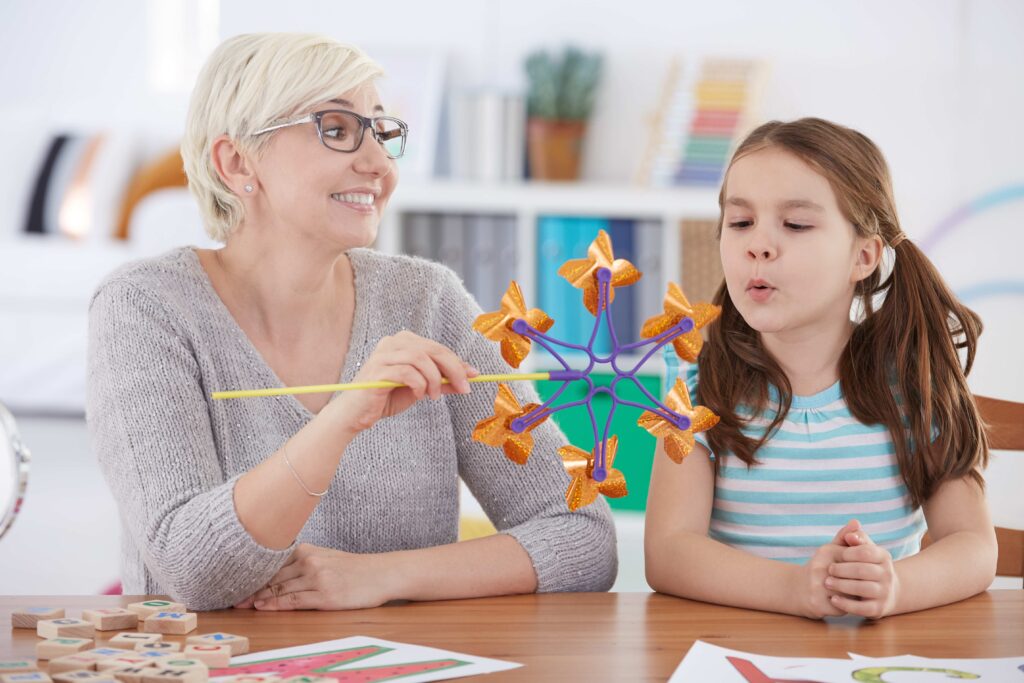Introduction to Play Therapy
Play therapy is a form of therapy that utilizes play to help individuals, especially children, express themselves, explore their emotions, and find solutions to their challenges. It provides a safe and supportive environment where clients can freely engage in play activities facilitated by a trained therapist. In this section, we will explore what play therapy is and the role of play in therapy.
What is Play Therapy?
Play therapy is a therapeutic approach that recognizes the power of play as a natural and essential part of human development. It is a specialized form of therapy that allows individuals, particularly children, to communicate their thoughts, feelings, and experiences through play. By engaging in play, clients can express themselves in a non-threatening and non-verbal manner, making it easier for them to explore and resolve their emotional difficulties.
During play therapy sessions, a trained play therapist observes and interacts with the client, carefully selecting and facilitating play activities that are tailored to meet the individual’s unique needs. These activities may include doll play, arts and crafts, puppets, sand and water play, and imaginative play. The therapist creates a safe and accepting space where the client feels comfortable exploring their inner world, building a therapeutic relationship based on trust and empathy.
The Role of Play in Therapy
Play is a natural and instinctive behavior for children, and it serves as their primary mode of communication and self-expression. In play therapy, play becomes the language through which clients can express their thoughts, feelings, and experiences. It allows them to create a symbolic representation of their inner world, enabling the therapist to gain insights into their emotions, conflicts, and challenges.
Play therapy provides numerous benefits by allowing clients to:
- Express Emotions: Play provides a safe outlet for clients to express and process their emotions, even when they may struggle to put their feelings into words. Through play, they can act out scenarios, engage in pretend play, or create artwork that reflects their emotional experiences.
- Explore and Problem-Solve: Play therapy encourages clients to explore different perspectives, experiment with new roles and behaviors, and find solutions to their challenges. It fosters creativity, imagination, and critical thinking skills, helping clients develop problem-solving and decision-making abilities.
- Enhance Self-Awareness: By engaging in play, clients can gain insights into their thoughts, feelings, and behaviors. They can develop a deeper understanding of themselves, their relationships, and their experiences. This self-awareness is vital for personal growth and making positive changes in their lives.
Play therapy is not limited to children; it can also be beneficial for adolescents and even adults who may find it difficult to express themselves verbally. The play therapist adapts the approach to suit the age and developmental needs of the client, ensuring a therapeutic experience that is tailored to their unique circumstances.
As you explore the benefits of play therapy, it’s important to recognize that it is just one of many therapeutic approaches available. Each approach has its own strengths and benefits, depending on the individual’s needs and goals. To explore other therapeutic options, such as art therapy or cognitive-behavioral therapy, visit our article on benefits of therapy.
Benefits of Play Therapy
Play therapy offers a wide range of benefits for individuals of all ages. Through the use of play, therapeutic techniques, and a safe, supportive environment, play therapy can help promote emotional expression, problem-solving skills, and self-awareness.
Emotional Expression and Communication
One of the primary benefits of play therapy is its ability to facilitate emotional expression and communication. Play allows individuals to express themselves non-verbally, especially for those who may struggle with finding the right words to articulate their thoughts and feelings. Through play, individuals can explore and express a wide range of emotions, such as joy, anger, sadness, and fear.
By engaging in play, individuals can create narratives, use symbols, and act out scenarios that reflect their inner experiences. This process provides a platform for emotional release and helps individuals develop effective ways of communicating their emotions. Play therapy can be particularly effective for children, as it allows them to express and process their feelings in a developmentally appropriate manner.
Problem-Solving and Decision-Making Skills
Play therapy also promotes the development of problem-solving and decision-making skills. During play, individuals are presented with various challenges and opportunities for decision-making. They can experiment with different strategies, test out different outcomes, and learn to make choices that align with their goals.
Through play therapy, individuals can develop problem-solving skills such as critical thinking, creativity, and flexibility. They learn to consider multiple perspectives, develop strategies to overcome obstacles, and evaluate the consequences of their actions. These skills can be transferred to real-life situations, enabling individuals to approach challenges with a greater sense of confidence and adaptability.
Self-Exploration and Self-Awareness
Another significant benefit of play therapy is the opportunity for self-exploration and self-awareness. Through play, individuals can explore different aspects of themselves, their identities, and their relationships. This self-exploration can lead to a deeper understanding of one’s thoughts, emotions, strengths, and areas for growth.
By engaging in play, individuals can experiment with different roles, try out new behaviors, and gain insight into their own patterns of thinking and behaving. This process of self-exploration and self-awareness can help individuals develop a stronger sense of self, improve self-esteem, and enhance their overall well-being.
Play therapy offers a unique and effective approach to therapy that harnesses the power of play to promote emotional expression, problem-solving skills, and self-awareness. By embracing the benefits of play therapy, individuals can embark on a journey of healing, growth, and mental wellness. For more information on the benefits of therapy, visit our article on benefits of therapy.
Play Therapy for Different Age Groups
Play therapy is a versatile therapeutic approach that can be adapted to different age groups, allowing individuals of all ages to benefit from its unique interventions and techniques. In this section, we will explore how play therapy is specifically tailored to meet the needs of children, adolescents, and adults.
Play Therapy for Children
Play therapy is particularly effective for children as it provides a safe and developmentally appropriate way for them to express their thoughts, emotions, and experiences. Through play, children can communicate their feelings and concerns non-verbally, allowing the play therapist to gain insights into their inner world.
In play therapy for children, play therapists utilize various toys, games, and art materials to facilitate the therapeutic process. This helps children explore and express their emotions, develop problem-solving skills, and build self-confidence. By engaging in play, children can work through their challenges, process traumatic experiences, and develop healthier coping mechanisms.
During play therapy sessions, the play therapist creates a nurturing and supportive environment, allowing children to feel comfortable and empowered to explore their thoughts and emotions. The use of play therapy techniques such as storytelling, puppetry, and role-playing can further enhance the therapeutic process for children. To learn more about the benefits of play therapy for children, visit our article on benefits of play therapy.
Play Therapy for Adolescents
Adolescence is a unique period of rapid growth and change, often accompanied by increased stress and emotional challenges. Play therapy can provide adolescents with a safe space to navigate these complexities and develop a better understanding of themselves and their experiences.
In play therapy for adolescents, the play therapist may incorporate a range of creative techniques, such as art therapy or sandplay therapy, to engage adolescents in the therapeutic process. These methods offer alternative ways for adolescents to express their thoughts and emotions, even when they struggle to articulate them verbally.
Play therapy can help adolescents develop problem-solving and decision-making skills, improve emotional regulation, and enhance self-esteem. By encouraging self-exploration and self-awareness, play therapy empowers adolescents to navigate their unique developmental journey and build resilience. To explore the benefits of art therapy, one of the techniques used in play therapy, visit our article on benefits of art therapy.
Play Therapy for Adults
Although play therapy is often associated with children, it can also be beneficial for adults. Play therapy offers a creative and experiential approach for adults to explore and address various emotional and psychological challenges.
In play therapy for adults, the focus shifts from traditional play to more expressive and creative techniques, such as art therapy or puppet therapy. These methods provide opportunities for adults to engage in symbolic expression, gain insights into their emotions and experiences, and foster personal growth.
Play therapy for adults can help individuals develop new coping strategies, improve communication and problem-solving skills, and enhance self-awareness. By engaging in play and creative exploration, adults can access deeper layers of their psyche and work through unresolved issues. To learn more about the benefits of different therapeutic approaches, such as cognitive-behavioral therapy or talk therapy, you can read our articles on benefits of cognitive-behavioral therapy and benefits of talk therapy.
Play therapy offers a versatile and effective approach for individuals across different age groups to engage in the therapeutic process and promote mental wellness and growth. By tailoring the techniques and interventions to the unique needs of children, adolescents, and adults, play therapy provides a valuable avenue for healing and personal transformation.
Techniques Used in Play Therapy
Play therapy utilizes various techniques to facilitate healing, self-expression, and personal growth. These techniques are tailored to meet the unique needs of each individual and create a safe and supportive therapeutic environment. Here are three commonly used techniques in play therapy:
Art Therapy
Art therapy is a powerful tool that allows individuals to express themselves non-verbally through art materials such as paints, clay, and drawing utensils. It provides a creative outlet for emotions, thoughts, and experiences that may be difficult to put into words. Through art therapy, individuals can explore their inner world, gain insight into their feelings, and process traumatic experiences.
The benefits of art therapy in play therapy include:
- Encourages emotional expression and release
- Enhances self-awareness and self-esteem
- Promotes problem-solving and decision-making skills
- Supports exploration of personal identity and relationships
For more information on the benefits of art therapy, please refer to our article on benefits of art therapy.
Sandplay Therapy
Sandplay therapy utilizes a tray filled with sand and a collection of miniature objects. Individuals are invited to create a scene or story using the objects in the sand, allowing their subconscious mind to guide the process. This technique provides a symbolic and non-verbal means of communication, enabling individuals to express and process their inner thoughts and feelings.
The benefits of sandplay therapy in play therapy include:
- Facilitates emotional expression and exploration
- Encourages creative problem-solving and decision-making
- Promotes a sense of control and empowerment
- Supports the integration of fragmented aspects of self
Puppet Therapy
Puppet therapy involves the use of puppets as a medium for communication and expression. By utilizing puppets, individuals can explore various roles, perspectives, and emotions in a safe and non-threatening manner. Puppet therapy allows for distance and objectification, enabling individuals to externalize their experiences and gain a different perspective on their challenges.
The benefits of puppet therapy in play therapy include:
- Encourages emotional expression and communication
- Enhances social skills and empathy
- Facilitates exploration of personal narratives and experiences
- Promotes self-reflection and self-acceptance
These techniques, among others, are employed by skilled play therapists to create a therapeutic space where individuals can explore, heal, and grow. The choice of technique depends on the unique needs and preferences of the individual. If you’re interested in learning more about the benefits of different therapy approaches, please visit our articles on benefits of cognitive-behavioral therapy, benefits of counseling, and benefits of family therapy.
Finding the Right Play Therapist
When seeking play therapy for yourself or a loved one, it’s essential to find a qualified and experienced play therapist who can provide the necessary support and guidance. Here are some key factors to consider when searching for the right play therapist.
Qualifications and Credentials
First and foremost, ensure that the play therapist holds the necessary qualifications and credentials. Look for therapists who have obtained a master’s degree or higher in a relevant field, such as counseling, psychology, or social work. Additionally, check if they are licensed or certified by a recognized professional organization, such as the Association for Play Therapy. These credentials demonstrate that the therapist has met specific educational and ethical standards.
Experience and Specializations
Experience plays a vital role in the effectiveness of play therapy. Consider the therapist’s years of experience working with clients of different age groups and presenting a variety of concerns. It can be valuable to find a play therapist who specializes in working with the specific age group or issue you or your loved one is facing. For example, some play therapists may have expertise in working with children with behavioral challenges, while others may focus on trauma or grief therapy. Assessing their experience and specializations can help ensure that you find a therapist who is well-equipped to address your unique needs.
Therapeutic Approach and Philosophy
Every play therapist may have a different therapeutic approach and philosophy. It’s important to understand their approach and determine whether it aligns with your own beliefs and goals. Some therapists may follow a specific play therapy model, such as Child-Centered Play Therapy or Cognitive-Behavioral Play Therapy. Others may integrate various approaches based on the client’s needs. Take the time to explore the therapist’s website or have an initial consultation to gain insight into their therapeutic approach and philosophy. This will help you determine if they are a good fit for you or your loved one’s therapeutic journey.
Finding the right play therapist is crucial for the success of play therapy. By considering the therapist’s qualifications, experience, specializations, and therapeutic approach, you can make an informed decision that promotes a positive therapeutic experience. Remember, play therapy is a collaborative process, and finding a therapist who can create a safe and supportive environment is essential for your mental wellness and growth. For more information on the benefits of play therapy and other types of therapy, visit our article on benefits of therapy.







